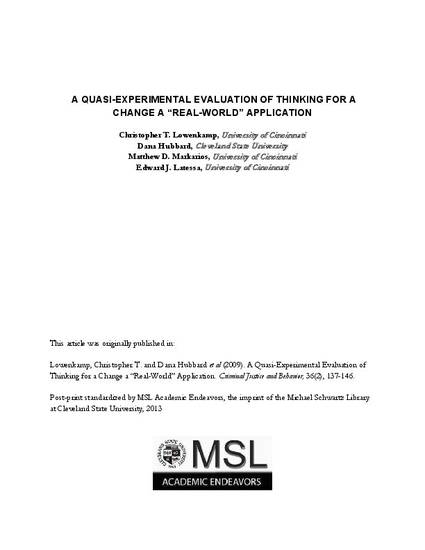
Due to the popularity of cognitive behavioral interventions, programs that follow this model are often assumed to be effective. Yet evaluations of specific programs have been slow in coming. The current investigation seeks to bridge this gap by evaluating the effectiveness of Thinking for a Change (TFAC), a widely used cognitive behavioral curriculum for offenders. Furthermore, this evaluation provides a “real-world” test of TFAC, because it was implemented by line staff in a community corrections agency as opposed to being a pilot project implemented by program developers. The results of the analyses indicate that offenders participating in the TFAC program had a significantly lower recidivism rate than similar offenders that were not exposed to the program.
